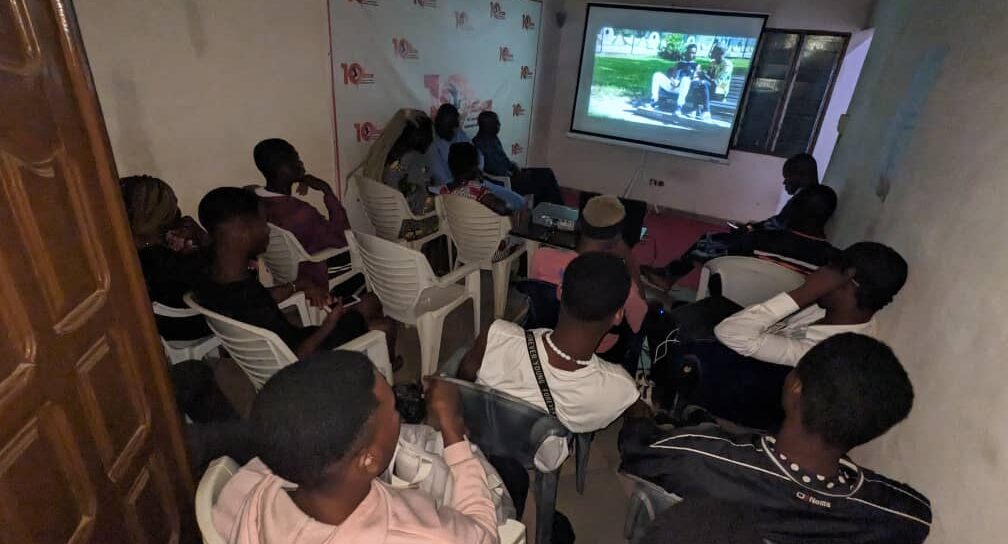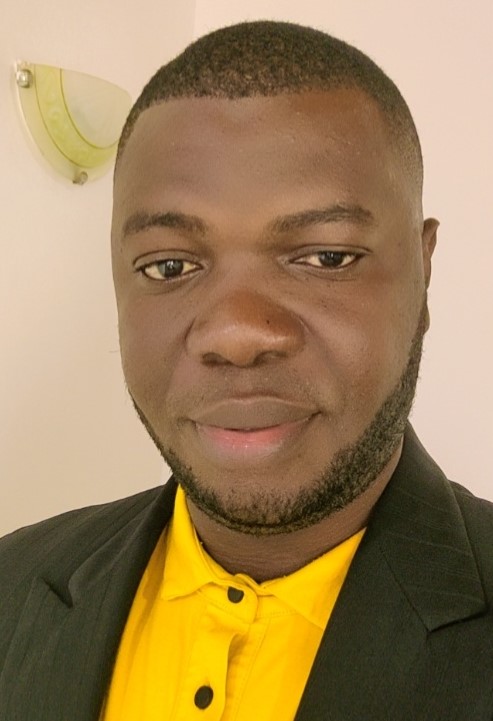Hirondelles Club provides support for homeless LGBT youth in Benin
For the past four years, the Hirondelles Club at the Rehoboth Friendship Centre in Benin has been providing human and social support to LGBT+ people seeking housing. Almost 380 young people from Benin and the sub-region have passed through the walls of this 20-place temporary accommodation centre. Luc Agblakou, the founder of Hirondelles, speaks to Erasing 76 Crimes, just as a report on the reception of young people with accommodation problems in Benin has been published.

A workshop given to young people (Photo courtesy of Hirondelles Club Benin)
Erasing 76 Crimes: How did you start the Hirondelles Club?
Luc Agblakou: I am the founding president of Hirondelles Club in Benin, and have been since March 2013. The organisation was founded when a father murdered his son after finding out he was gay. We are an organisation for the defence of sexual and gender minorities in Benin. Today, we have even become an international non-governmental organisation, as we have branches in other countries in the sub-region (Togo, Burkina-Faso, Niger), as well as supporters in France. That’s why we’ve grouped together under the name “Hirondelles Club International” in the French-speaking world.
Since 2020, we have been managing a 20-place shelter that provides accommodation for our beneficiaries for a maximum of 3 months. We provide health and social support for these people, as well as short training courses.
Erasing 76 Crimes: What is the situation like for LGBT people in Benin?

Luc Agblakou
Luc Agblakou: In Benin, there is as much homophobia as elsewhere in West Africa, although it is not criminalised. On the other hand, we have more scope for advocacy and awareness-raising, even though the vast majority of Beninese are homophobic. Violence and lynchings are commonplace. Just recently, Thomas Boni Yayi, the former President of the Republic (2006-2016), launched a virulent call for hatred towards LGBT people, citing passages from Leviticus invoking Sodom and Gomorrah on his Facebook page.
However, we do have a few court rulings to our credit, which should give pause for thought to those who would attack the physical integrity of LGBT+ people. To date, there have been nearly three court rulings in favour of people we have supported. These have resulted in various sentences for the attackers, with varying degrees of deterrence, including six months imprisonment, six months suspended imprisonment, and fines.
Erasing 76 Crimes:You’ve said that there has been an over-representation of transgender people receiving accommodation support over the past four years. Why is that?
Luc Agblakou: We have taken in a total of 171 trans people, out of the 380 young people we have seen since 2020. For me, this is due to the visibility of trans people’s gender expression. This community generates a great deal of animosity, shame and rejection on the part of families. This also means that we have to try to mediate with families whenever possible. Finally, many of the trans people come from neighbouring countries in the grip of military juntas, including Mali, Niger and Burkina-Faso.
Erasing 76 Crimes: There is also an over-representation of Evangelical Christians among the host population, what do you think about that?
Luc Agblakou: The majority of the population is religious in Benin, but I would point out that Evangelicals and Muslims are the most hostile to LGBT+ people. Religious leaders are also influential opinion leaders among the population, who see them as God’s representatives on Earth. There is a lot of homophobic preaching in mosques and evangelical temples, but from time to time we are able to talk to traditional animist religious leaders around the town of Dangbo in the Ouémé region in the south of the country.
We have limited resources and we haven’t yet dedicated a programme to this type of activity, to be able to nurture exchanges with leaders of faith and spirituality.
Erasing 76 Crimes: We’ve noticed that you take in a lot of young people who lack work skills. Are you working on this vulnerability?
Luc Agblakou: The lack of training for our many young people is a real scourge. We run group training courses during our young people’s stay, so that they have a better chance of taking charge of their lives once their stay is over.
The group courses we provide are mainly in decoration or hairdressing and are short courses. However, even when our beneficiaries leave the shelter after three months, we support them in their professional integration projects, as some of the training courses last up to one year: styling, graphic design, embroidery.
Erasing 76 Crimes: How do you see Benin evolving in terms of respect for LGBT+ people in the future?
Luc Agblakou: Nothing is taken for granted and set in stone, and on a day-to-day basis we resist the prevailing homophobia. However, it is remarkable that Benin accepted two recommendations during the Universal Periodic Review held in January 2023.
The items endorsed by Benin concern combating discrimination against people living with HIV (including when they are LGBT+) and bringing the perpetrators of LGBTphobic attacks to justice.
Anyone wishing to obtain the activity report for the Rehoboth Community Centre can write to Hirondelles Club du Bénin here.
COMMENTS